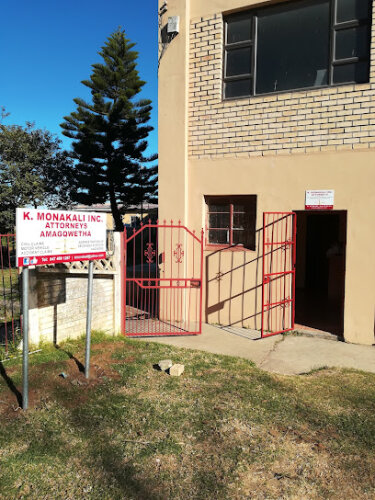Best Sexual Harassment Lawyers in East London
Share your needs with us, get contacted by law firms.
Free. Takes 2 min.
List of the best lawyers in East London, South Africa
About Sexual Harassment Law in East London, South Africa
Sexual harassment is a serious issue in South Africa, including in East London. Sexual harassment often occurs in the workplace, educational institutions, public spaces, and even homes. The South African legal system defines sexual harassment as unwanted conduct of a sexual nature that violates the rights of an individual and can create an intimidating, hostile, or offensive environment. Various laws protect individuals from sexual harassment, with the Constitution, the Employment Equity Act, and the Protection from Harassment Act providing specific frameworks for addressing such conduct. Taking legal action is a significant step that many victims or accused individuals may need to consider.
Why You May Need a Lawyer
You may need legal assistance in sexual harassment cases for several reasons:
- If you are a victim of sexual harassment and want to understand your rights or pursue a formal complaint.
- If you have been accused of sexual harassment and wish to mount a defense or clarify an incident.
- If your employer or educational institution fails to address your complaint properly.
- If the harassment leads to negative consequences such as dismissal, victimization, or harm to your reputation or mental health.
- If you require compensation for damages suffered due to harassment.
- If you are unsure how to navigate internal policies, disciplinary hearings, or formal court proceedings.
- If you need support in obtaining a protection order under the Protection from Harassment Act.
A lawyer can help you understand your options, gather evidence, draft legal documentation, represent you at hearings, and ensure you are treated fairly throughout the process.
Local Laws Overview
Sexual harassment laws in East London, South Africa, are primarily governed by national legislation but are enforced and applied at local levels. Key laws include:
- The Employment Equity Act (EEA): Prohibits sexual harassment in the workplace and places a duty on employers to create safe working environments and respond appropriately to complaints.
- Labour Relations Act (LRA): Provides mechanisms for resolving disputes related to unfair dismissals or discrimination due to sexual harassment.
- Protection from Harassment Act: Offers protection for victims of harassment, including non-workplace situations, and makes it possible to apply for protection orders from court.
- South African Constitution: Guarantees the right to dignity, equality, and freedom from discrimination or violence.
In East London, victims may approach bodies such as the Commission for Conciliation, Mediation and Arbitration (CCMA), the South African Police Service, or courts depending on the specifics of the case.
Frequently Asked Questions
What is considered sexual harassment under South African law?
Sexual harassment includes unwelcome physical, verbal, or non-verbal conduct of a sexual nature, such as inappropriate touching, sexually suggestive comments, jokes, advances or requests, displaying explicit material, or any conduct that creates a hostile environment.
Must sexual harassment only occur in the workplace?
No, sexual harassment can occur in the workplace, schools, public spaces, or even at home. The Protection from Harassment Act covers both workplace and non-workplace environments.
What can I do if I am being sexually harassed?
You should document incidents of harassment, report the matter to your employer, school, or relevant authority, and consider seeking legal or psychological support. You may also apply for a protection order in court.
Can I be dismissed for reporting sexual harassment?
It is unlawful for an employer to dismiss or retaliate against someone for reporting sexual harassment. Victims are protected by whistleblower and labour laws.
What evidence do I need to prove sexual harassment?
Evidence may include messages, emails, witness statements, recordings, diaries, or any documentation related to the incidents. Keeping detailed records is critical.
What is a protection order and how do I apply for it?
A protection order is a court-issued document instructing the harasser to stop specific behaviors. You can apply at your nearest Magistrates' Court, and legal advisors can assist you throughout this process.
What should I do if I am falsely accused of sexual harassment?
Seek legal advice promptly. Gather any evidence that supports your case, such as communication records or witness accounts, and cooperate with any investigation in a professional manner.
Is mediation possible in sexual harassment cases?
Yes, in some cases, mediation is encouraged before proceeding to formal hearings, especially where all parties are open to resolving the matter amicably.
Can I claim compensation if I am a victim?
Yes, victims may claim compensation for damages suffered, such as emotional distress or financial losses, through legal proceedings or via the CCMA where work-related.
Are there time limits for reporting sexual harassment?
It is advisable to report harassment as soon as possible. However, certain forums like the CCMA require that disputes be referred within specific timeframes, usually within six months of the incident.
Additional Resources
If you need further assistance or information regarding sexual harassment in East London, consider contacting the following resources:
- Commission for Conciliation, Mediation and Arbitration (CCMA): For workplace disputes, complaints, and mediation.
- South African Police Service (SAPS): For criminal conduct or where you feel physically threatened.
- Legal Aid South Africa: Offers free or affordable legal assistance to qualifying individuals.
- Gender Commission of South Africa: Provides advocacy and can guide you on your rights.
- Local law clinics and NGOs: Organizations such as Rape Crisis and Lifeline East London offer counseling, support, and legal guidance.
- Magistrates' Court: For direct application for protection orders under the Protection from Harassment Act.
Next Steps
If you believe you are involved in a sexual harassment case, or you are unsure about your legal rights and responsibilities, take the following steps:
- Document all incidents of harassment or related conduct.
- Consult your organization's policies or speak to a trusted authority figure.
- Contact a qualified legal professional or local law clinic for confidential legal advice.
- Consider mediation or formal complaint channels where appropriate.
- If necessary, approach the CCMA or the relevant court for resolution or a protection order.
- Seek emotional support from a counselor or NGO specializing in victim assistance.
Remember, the law in East London, South Africa, is designed to provide protection and ensure fair treatment for everyone involved in sexual harassment cases. Early legal advice can clarify your options and protect your rights.
Lawzana helps you find the best lawyers and law firms in East London through a curated and pre-screened list of qualified legal professionals. Our platform offers rankings and detailed profiles of attorneys and law firms, allowing you to compare based on practice areas, including Sexual Harassment, experience, and client feedback.
Each profile includes a description of the firm's areas of practice, client reviews, team members and partners, year of establishment, spoken languages, office locations, contact information, social media presence, and any published articles or resources. Most firms on our platform speak English and are experienced in both local and international legal matters.
Get a quote from top-rated law firms in East London, South Africa — quickly, securely, and without unnecessary hassle.
Disclaimer:
The information provided on this page is for general informational purposes only and does not constitute legal advice. While we strive to ensure the accuracy and relevance of the content, legal information may change over time, and interpretations of the law can vary. You should always consult with a qualified legal professional for advice specific to your situation.
We disclaim all liability for actions taken or not taken based on the content of this page. If you believe any information is incorrect or outdated, please contact us, and we will review and update it where appropriate.










